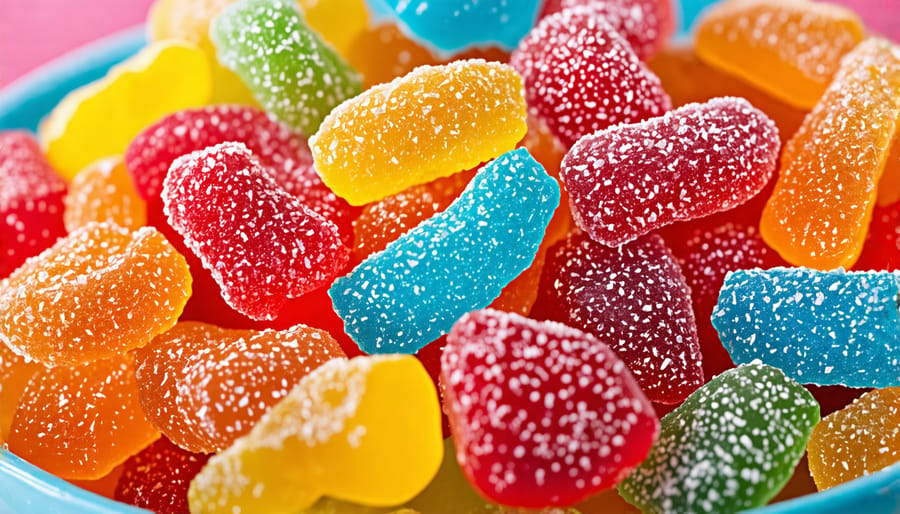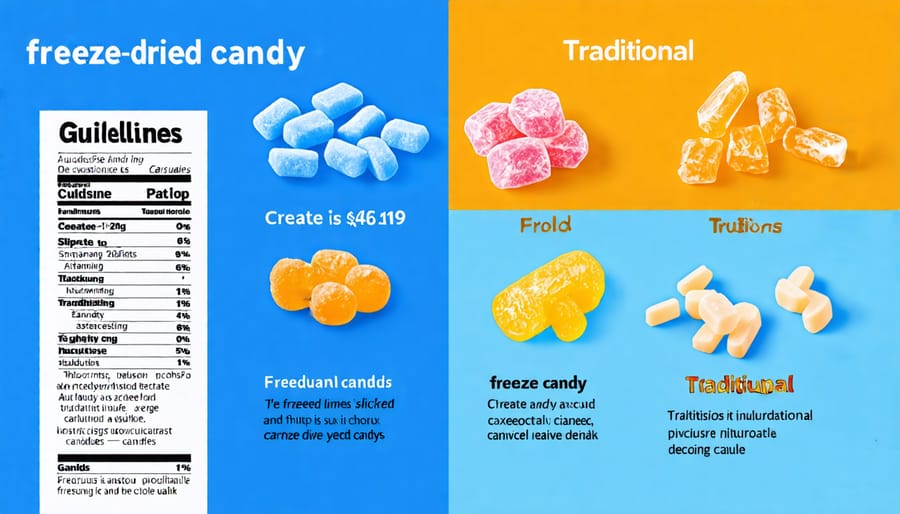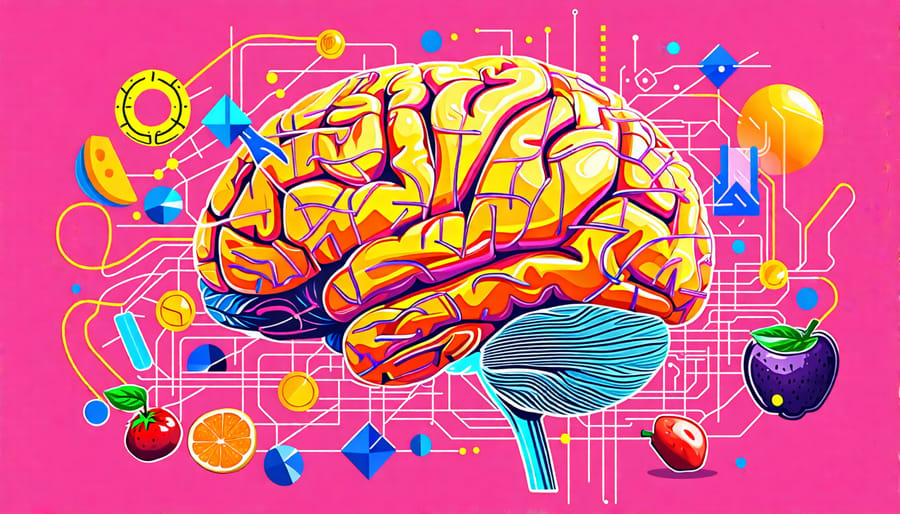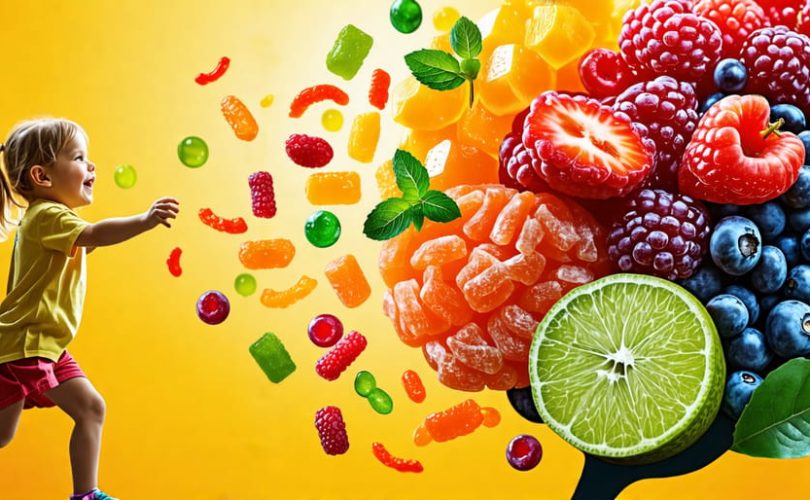Enhance children’s mental health by incorporating nutritious snacks into their diet. First, choose snacks like top freeze dried snacks that deliver essential nutrients without excessive sugars. Focus on options rich in vitamins, minerals, and healthy fats. Next, involve children in snack preparation to boost their interest and understanding of nutrition. Encourage choices that combine taste with health, like fruits or whole grains. Consult with nutrition experts to tailor snack options to individual dietary needs, and consider anecdotal evidence from other parents adjusting to healthier snack routines. Reinforce positive eating habits by setting regular snack times to create consistent routines that impact mood and behavior positively.
Understanding Freeze-Dried Candy

Nutritional Profile of Freeze-Dried Candy
Benefits Over Traditional Candy
Freeze-dried candy offers a refreshing alternative to traditional sweets, which often come loaded with high sugar and artificial additives that can negatively impact children’s mental health. Unlike their sugary counterparts, freeze-dried options typically retain more of the fruit’s natural nutrients, enhancing the snack’s overall nutritional value. This can lead to a more stable energy release, avoiding the sharp sugar highs and lows associated with regular candy consumption that might disrupt concentration and mood. A compelling story shared by a mother in our community illustrates this well. After switching her child’s school snack to freeze-dried fruits, she observed a noticeable improvement in focus and calmness throughout the day. These anecdotes are supported by experts who suggest that maintaining stable blood sugar levels through healthier snacks can contribute positively to a child’s mental well-being. Parents and educators looking to support children’s health can find comfort in these choices, knowing that freeze-dried candies not only satisfy the occasional sweet tooth but also promote a more balanced mental state.

Potential Drawbacks
While freeze-dried candy can be an exciting treat for children, it’s important to acknowledge some potential drawbacks, particularly concerning their nutritional content. Many of these snacks, while visually appealing and fun to eat, can be high in sugar and low in essential nutrients required for healthy development. Excessive sugar consumption is linked to mood swings and energy crashes, which can affect a child’s behavior and concentration. Additionally, some freeze-dried candies may contain artificial colors and flavors that can contribute to hyperactivity or behavioral issues in sensitive children. Parents have shared stories of how limiting processed snacks improved their child’s mood stability and focus, suggesting the need for moderation. Healthcare professionals often recommend that such treats be consumed sparingly and combined with a balanced diet rich in whole foods. Therefore, while these snacks can occasionally bring joy, being mindful of their place in a child’s diet is essential for supporting both physical and mental well-being.

Impact of Nutrition on Mental Health in Children
The Connection Between Diet and Mood
Scientific research highlights a fascinating connection between what children eat and their emotional and mental well-being. It’s becoming increasingly clear that dietary choices can significantly influence a child’s mood, affecting their overall mental health. For example, diets high in sugar and additives, often found in traditional candies, may lead to mood swings and irritability. On the other hand, snacks rich in essential nutrients like omega-3 fatty acids, vitamins, and minerals can support brain health and stabilize mood. Personal stories from parents, like Jenna, whose son transformed from being anxious to more relaxed by replacing candy bars with healthier alternatives, illustrate the powerful impact of diet on a child’s mood. Experts suggest that foods rich in complex carbohydrates, fiber, and protein can keep children’s blood sugar levels steady and support serotonin production, the feel-good chemical in the brain. Healthcare professionals often recommend incorporating snacks like nuts, yogurt, and fruits, which are not only nutritious but also child-friendly, offering more stable energy and better mood regulation. These insights encourage a shift towards mindful snacking choices that nurture mental well-being, underlining the importance of understanding the nuanced relationship between diet and a child’s emotional health. While snacks like freeze-dried candy may seem appealing, choosing nutrient-rich options can foster better mental health outcomes.
Expert Opinions
Child nutrition is pivotal not just for physical growth but also for mental well-being. Renowned nutritionist Dr. Emily Jones emphasizes the significance of balanced nutrition, noting that “a diet rich in whole grains, fruits, and vegetables can support healthy brain function in children.” She explains that essential nutrients, such as omega-3 fatty acids and magnesium, found in natural foods, play a crucial role in maintaining a stable mood and improving cognitive abilities. Similarly, child psychologist Dr. Mark Lee highlights that nutrition can be as influential as any other aspect of a child’s environment in shaping their emotional health. He shares, “Children who consume a well-rounded diet are better equipped to handle emotional stress and show improved focus in their daily activities.” Dr. Lee points out that snacks like freeze-dried fruits can be an excellent alternative to sugar-laden treats, offering nutritional benefits without a spike in blood sugar levels, which can cause mood swings. These expert insights underscore the importance of considering nutritional value when choosing snacks for children. As parents and educators become more aware of these impacts, making informed choices can lead to better outcomes in children’s mental health and overall development, setting a strong, resilient foundation for their future.
How Freeze-Dried Candy Could Support Mental Well-Being
Incorporating Treats Responsibly
Incorporating freeze-dried candy as a treat in your child’s diet can be both a delightful experience and a healthy choice when done responsibly. While these candies are fun and can satisfy sweet cravings, it’s important to balance them with nutritious meals. Pair these candies with foods rich in proteins and complex carbohydrates to maintain stable energy levels and support mental health by reducing mood swings. Expert nutritionists suggest setting specific treat days to help kids understand moderation, making sweets a special and valued part of their diet rather than a daily expectation. Additionally, involve children in choosing their treats, fostering a sense of control and encouraging mindful eating. Stories from parents often reveal that offering small, occasional rewards, like freeze-dried candy, can motivate children to enjoy healthier foods during meals. Remember, it’s not about eliminating treats, but about teaching balance, making sweets an enjoyable, stress-free part of a well-rounded lifestyle.
Parental Perspectives
As parents, finding snacks that strike a balance between indulgence and nutrition can be a real challenge. Many mothers and fathers share heartwarming stories of how they navigate this balance, often allowing their kids a sweet treat after ensuring their core meals are packed with nutrients. One parent recalls the joy on her child’s face when introducing new freeze-dried fruits as a fun alternative to sugary sweets, noticing a more stable mood throughout the day. Others express a shared sentiment of relief in discovering snacks that are both appealing to children and gently supportive of their mental well-being, illustrating the thoughtful balancing act so many families embrace.
Conclusion
In conclusion, while freeze-dried candy may offer a unique and appealing snack option for children, it’s crucial to approach it with moderation and balance. As with any treat, excessive consumption can lead to negative impacts on both physical and mental well-being. By prioritizing a diverse, nutrient-rich diet and encouraging healthy eating habits, parents and caregivers can support their children’s overall health and happiness. It’s important to remember that no single food or snack holds the key to optimal mental health. Rather, it’s the combination of a balanced diet, regular physical activity, quality sleep, and a nurturing environment that sets the foundation for a child’s emotional well-being. By approaching freeze-dried candy and other treats with a mindful and informed perspective, we can help children develop a positive relationship with food while promoting their long-term mental and physical health. For a deeper dive into the crucial relationship between diet and mental health, you might also consider exploring more about how to unlock the connection between diet and mental health in children.







